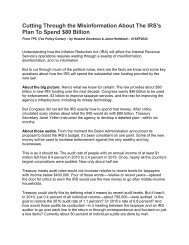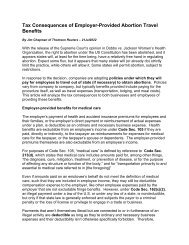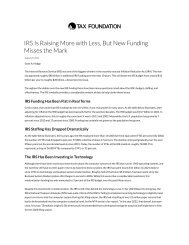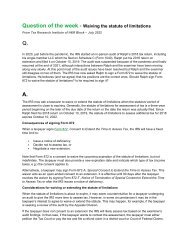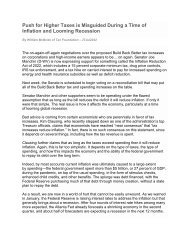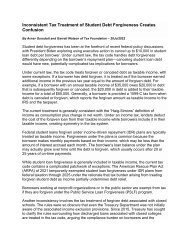Public-Sector-State-Budget-Shortfall-impact-improved digital services and cybersecurity
Create successful ePaper yourself
Turn your PDF publications into a flip-book with our unique Google optimized e-Paper software.
Online <strong>services</strong>, such as driver’s license renewals or accessing public-health information, jumped two<br />
places this year to rank second in the annual listing of state IT priorities compiled by NASCIO. Broadb<strong>and</strong><br />
access climbed to the fourth spot, its highest ever ranking, driven by increased dem<strong>and</strong>s to support<br />
remote work, home schooling <strong>and</strong> other issues sparked by lockdowns <strong>and</strong> travel restrictions.<br />
Cybersecurity topped the list for the ninth year in a row, the group said. The rankings are determined by<br />
member votes.<br />
Throughout the year, many public-sector IT leaders were forced to balance ongoing efforts to update<br />
aging systems with emergency needs.<br />
Recent shifts to cloud computing helped carry the added load without overwhelming available capabilities,<br />
while enabling agencies to rapidly deploy communications <strong>and</strong> collaboration software <strong>and</strong> other<br />
applications.<br />
“<strong>Public</strong>-sector agencies will have to continue the migration to the cloud to accommodate their work-fromhome<br />
staff,” said Daniel Castro, vice president of the Information Technology <strong>and</strong> Innovation Foundation,<br />
a Washington-based tech policy think tank.<br />
Mr. Castro said a breach earlier this year of computer systems at multiple federal agencies, disclosed this<br />
week, will likely focus greater attention on state IT security efforts.<br />
The attacks, which included the U.S. Treasury <strong>and</strong> Commerce departments, are believed to be part of<br />
a global cyber-espionage campaign targeting key public-sector agencies.<br />
While cyberattacks typically exploit security weaknesses or poorly guarded systems, he said,<br />
“organizations with good security practices still fell victim.” Mr. Castro said the attack could prompt some<br />
public IT security leaders to adopt strategies such as a zero-trust model, which involves narrowing<br />
<strong>cybersecurity</strong> efforts to the level of individual applications, rather than an entire network—a safer, but<br />
costly shift.<br />
New Hampshire's Mr. Goulet said security breaches <strong>and</strong> ransomware attacks hamper the ability for state<br />
<strong>and</strong> local governments to provide essential <strong>services</strong>, including p<strong>and</strong>emic-relief efforts.<br />
“Almost every day we’re reminded that we must remain ever vigilant,” he said. “No one is immune.”



